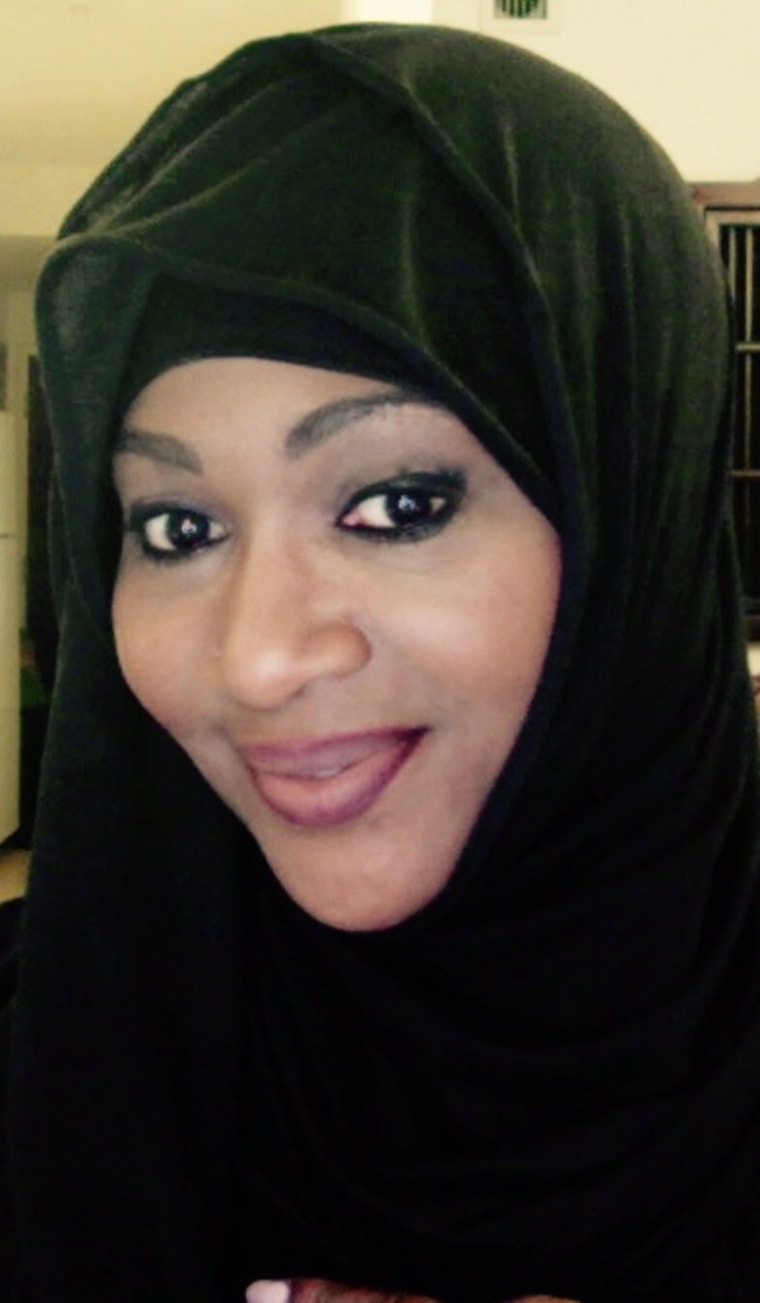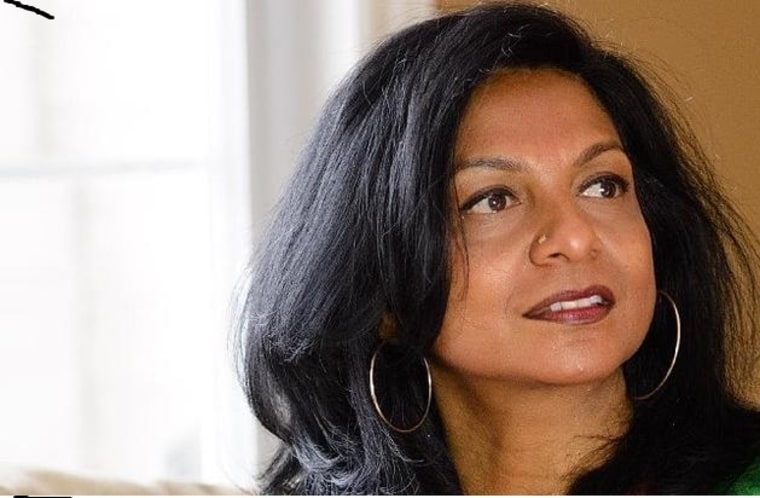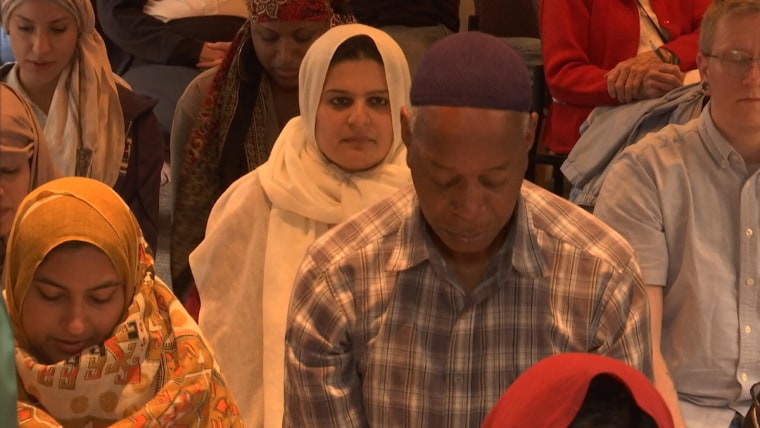Rabi’a Keeble has long believed that in the United States, women play important roles outside of the home, but when she thought about how they are treated in some mosques — seated in the back or in separate sections where even hearing the imam can be difficult — she felt it was unfair.
“Here, everybody is welcome,” said Keeble told NBC News. “It’s like, when Rosa Parks got tired of sitting in the back of the bus. Women are getting tired of sitting in the back of the mosque.”
“Religion asks us to fight segregation and bigotry, for this is not how we are going to go forward. This is how we be Muslims — or non-Muslims — together.”
That fatigue inspired her to start the Qal’bu Maryam Women’s Mosque in Berkeley, California, which hosted its first call to prayer Friday, becoming the first women-led mosque in Northern California — and the second in the nation — according to Keeble. The mosque is for all Muslims, men and women, and for those curious to learn about the religion in a relaxed, supportive environment.
A place of worship, Keeble said, should be welcoming and feel like home.
Traditionally, women are not told to attend Islamic congregational prayer services on Fridays, called “Jumu’ah.” Instead, they are told to stay home and pray, while the men attend worship at the local mosque.
“A lot of men are just not comfortable with women in the mosque,” Keeble said.

Oftentimes, women, who are seated in separate sections of mosques and use separate entrances, cannot see or hear the imam, she noted. The lack of engagement always irked her.
“So then why even do it? What are you learning or even getting from being there?” Keeble said. “It’s implied that the men don’t expect you to actually learn anything, because you’re women. Islam is not a monolith…at its root, it is a very ancient and beautiful religion.”
While women are not blatantly being abused or attacked in mosques, Keeble believes that women can feel oppressed by judgment — especially from male religious leaders. The men often criticize small things, from a woman’s clothes to her choice of hijab, making the woman feel shamed and not welcomed in mosque-culture, she said.
“We need to have spaces that are safe for women — especially immigrants — to engage, where they’re not being oppressed or judged. It’s time for us to have either our own mosque, or to have a different configuration than the ones that exist,” Keeble said.
She named the new mosque “Qal’bu Maryam,” which translates from Arabic to “the heart of Mary” — to honor the mother of Jesus Christ (whom Muslims know as Isa), as an “elevated, formidable” woman in the Quran.
“Despite terrifying and unknown circumstances, she gave her bold yes — what a heart Mary must have had,” Keeble said. “God prepares his vessels, the people who are going to carry out a very important task for him, and she was one of those people.”
With Mary as her inspiration, Keeble followed her own call, which she said began from when she first converted to Islam 14 years ago.
She set out to open up a different kind of mosque: one that intentionally includes, and is led by, women.
The catalyst for starting a women’s mosque was Keeble’s own frustration and experience with a religion that, she said, is “heavily patriarchal.”
Earning her master’s degree in religious leadership and social justice from the Graduate Theological Union’s Starr King School of Ministry in 2012, Keeble has a heart for education.
In January, she approached friends and mentors to help build the idea of the mosque, where teachings and the call to prayer — led by women imams — would still follow the traditional Quran.
“I feel that, if we have women clergy and leaders, we are in a better position to teach about compassion and love. When we women step into our greatness, people will stand for us,” Soraya Deen, a Muslim activist from Tarzana, California, and founder of the Muslim Women Speakers movement, told NBC News. She gave the mosque’s first sermon.

In February, Keeble approached Rev. Dr. Gabriella Lettini, the dean of the faculty at Starr King School of Ministry. Lettini offered to host the mosque at the Berkeley campus.
Keeble said it was “serendipitous” to find a space in the expensive Bay Area.
“Our school trains and supports compassionate and courageous spiritual leaders, who are deeply grounded in justice-making and respect for diversity,” Lettini said. “We have a long history of being a sanctuary for people at the margins of their religion traditions and communities, [which] benefit when women are free to offer their gifts and wisdom, and are recognized for their contributions and efforts.“
With Jumu’ah held on Fridays, the Qal’bu Maryam women’s mosque is planning to offer classes on Islam for people of all faiths in an effort to start an inclusive interfaith dialogue.
Keeble believes it is crucial to have a space where Muslims, Jews, Christians, and all can come together and be taught “not what I think your religion says, but how your understanding of the religion is.”
“The thing that people often miss is that Islam is about social justice—this gets lost in the system of patriarchy, and we women have to put up with it,” she said, citing growing hate crimes and the recent travel ban.
She believes it is also key for Muslims to have a dialogue about these issues.
“What we want to hear is how Islam can be better represented in the public, in the media, and in the hands of women, we can rewrite the script a little bit…we can reframe the way American Islam is seen in the world,” she said.
It’s like, when Rosa Parks got tired of sitting in the back of the bus. Women are getting tired of sitting in the back of the mosque.”
The mosque is also planning to offer resources to female mental and physical health providers, helping Muslim women break the stigma that they cannot seek fellow women professionals to address their needs.
All visitors of the mosque are also expected to have a certain standard of modesty, as stated in the Quran.
Unlike the Women’s Mosque of America, the first women’s-only mosque, which opened two years ago in Los Angeles, services at Qal’bu Maryam will allow both men and non-Muslims to join, with no barriers or preferential seating.
The Qal’bu Maryam supports a network of other inclusive mosques and Muslim organizations around the world, including the Musawah gender equality movement and the Women’s Mosque of America. Spiritual advisors and teachers at the mosque include rabbis, theology students, and Islamic and Quranic scholars.
“The primary idea of this is that women need women, especially women of color. If we don’t support one another, we have failed,” Keeble said. “I’ve found though this process that there are some really tough, intelligent, powerful sisters…and I’m so glad to be able to get on the other side of that wall, and get to know them.”
“Religion asks us to fight segregation and bigotry, for this is not how we are going to go forward,” Keeble added. “This is how we be Muslims — or non-Muslims — together.”
Follow NBC Asian America on Facebook, Twitter, Instagram and Tumblr.
